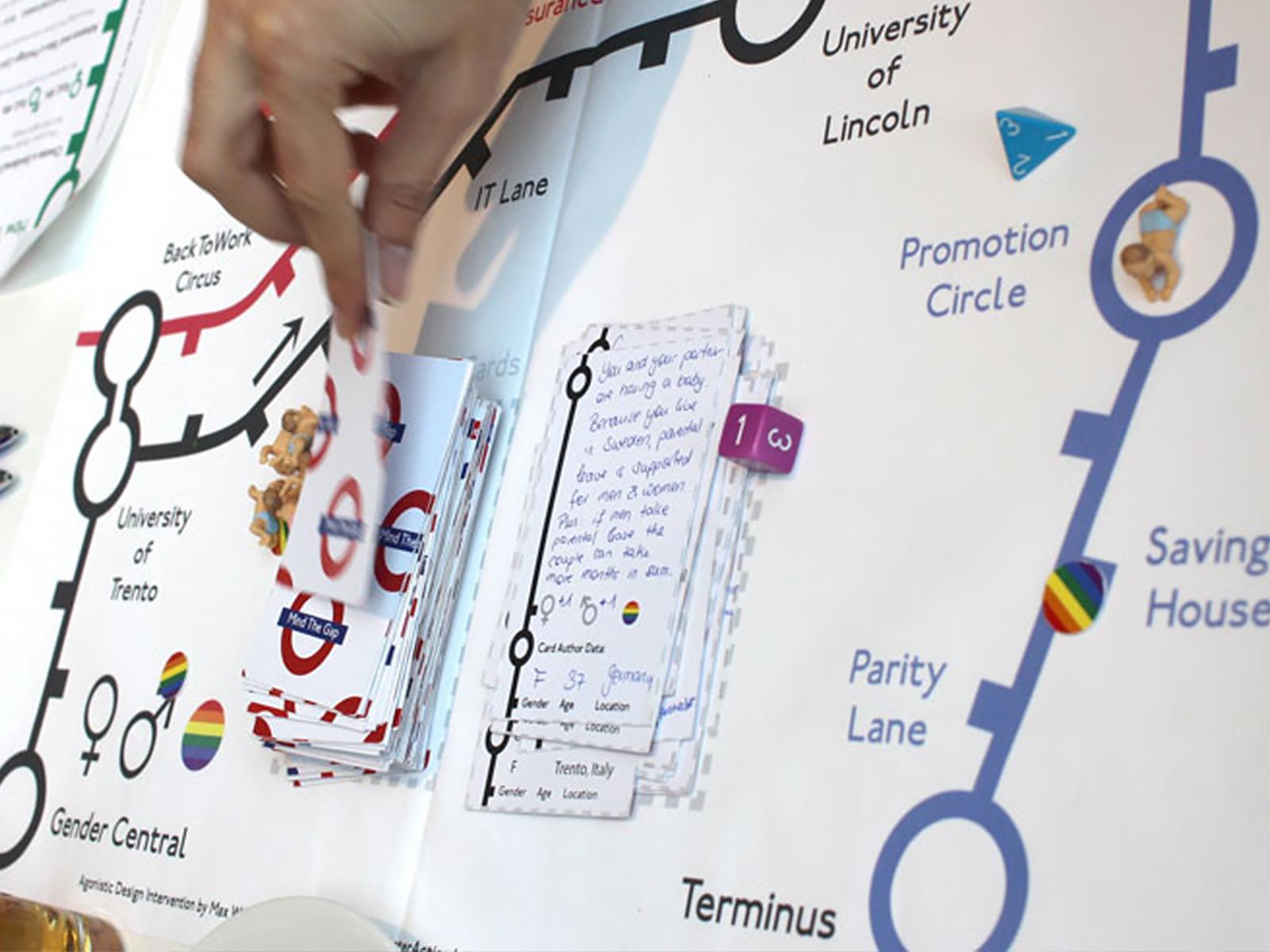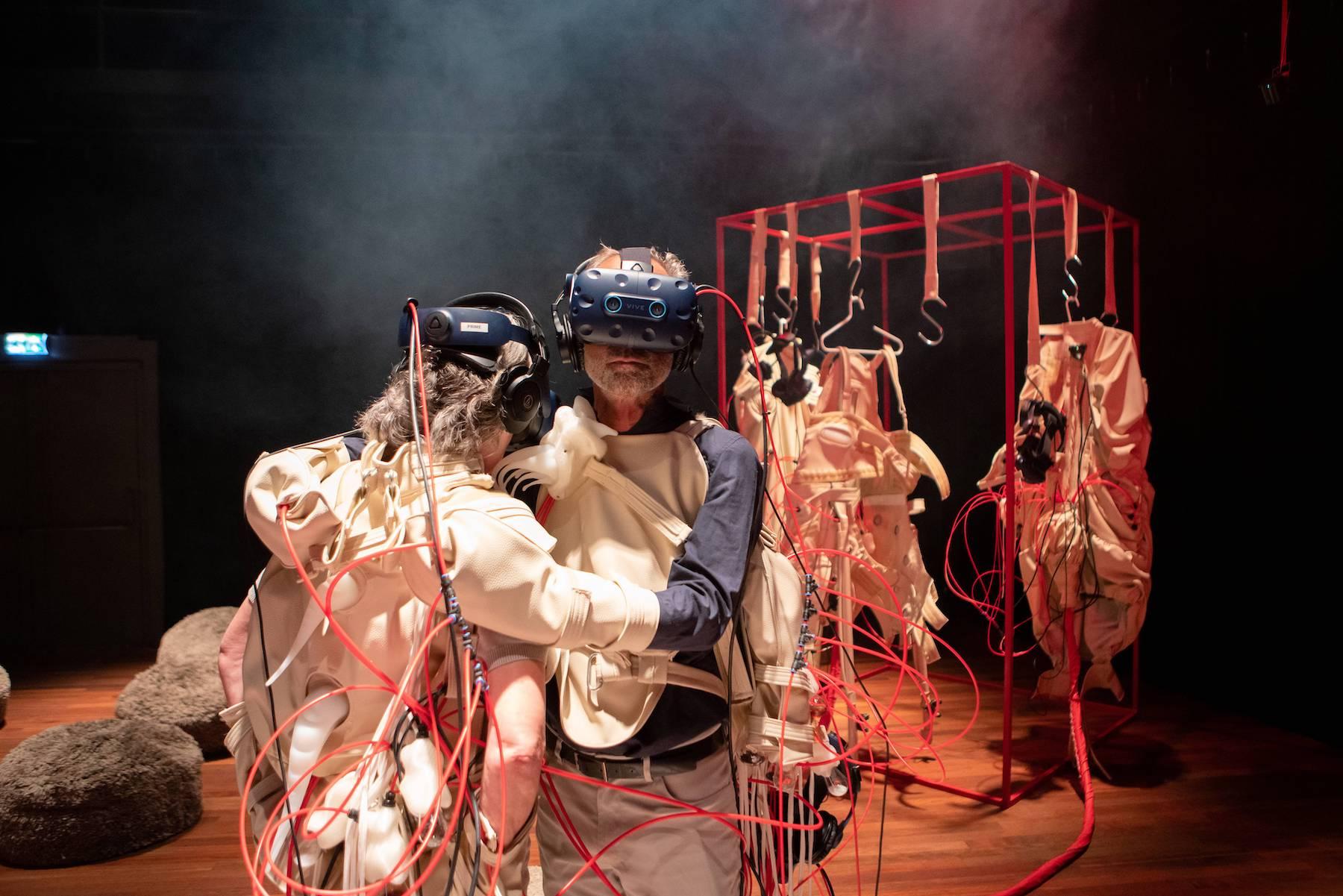We regularly invite external parties to present or try out their programme on themes related to Waag's. Professor Antonella de Angeli has been conducting research on the gender balance in technology careers and co-developed the game Mind the Gap, which visitors to our Open Thursdays' event on August 16th got to play and contribute to.
Gender gap
Addressing the gender gap in tech is important because our society gets more and more dominated by technology, as we all know. Innovation is on everyone's agenda, but research shows that the way e.g. sciences are communicated to young people, in and out of education, is not yet gender inclusive. And, what is more, young Europeans, both girls and boys, still have very little idea of the variety of careers that are possible in technology, nor do they have an idea of the skills that are relevant for those career paths.
Apparently, in 2018, the Dutch tech industry only consists of 15.6 percent women. With 18.7 percent, our country also has the seventh lowest percentage of female STEM graduates, worldwide (women in tech survey 2018). What women potentially contribute to a team is addressed in a recently published article in Harvard Business Review: "There’s little correlation between a group’s collective intelligence and the IQs of its individual members. But if a group includes more women, its collective intelligence rises." With some 24 women on 28 participants this promised to be an interesting evening.
STEM skills — or STEAM skill as we like to fundamentally connect the arts to science and technology education — are needed in order to guarantee an adequate and professional workforce in a broad range of careers. So it is really important to talk about how to engage young people and especially girls in tech careers and to start talking about STEM related careers in a gender inclusive way.
And at the same time to be critical of stereotyping. If we define gender roles solely as binary male - female roles we will be missing a variety of sensibilities and abilities in STE(A)M related careers.
Role-play game
The Mind the Gap game is a role-play game, designed as a structure for dialogues which examine the gender gap and reveal different perspectives concerning gender privilege and discrimination. The board game portrays a stereotypical career path in STEM. Players are randomly allocated a male, female or rainbow player character. The cards that drive the game are almost entirely participant authored. These cards contain "micro-stories that are often humorous, sometimes deeply personal, on occasion surprising, and overall quite revealing and share the breadth of gender related challenges that face people in their lives and work." The micro-stories gathered are input for De Angeli's research on which she regularly publishes.
During the evening players could contribute new micro-narratives and new game rules, and they did. The players produced an astonishing 30 new cards which Antonella will be analysing to write the "amsterdam" gender story. Though the players valued the focus on the narratives of earlier players, and the cultural insights they bring, they proposed to connect these 'experience cards' with 'fact cards' that would give context to the individual narrative. And to create team goals to challenge certain specific (unfair) situations, to be able to collaborate with other players to help advance individual careers or to extend the notion of role playing by giving each character a backstory.
Role models
The evening ended with a lively discussion on the importance of role models, or rather the lack of female role models in tech. Especially mothers seem to be a decisive factor in a girl's choice for a STEM career. "Mums are the biggest barrier to girls pursuing STEM careers. Not all Mums! But most mums have a stereotypical view of a STEM career as not being one where their daughter will be happy. Mums want daughters to be happy!"
If you want to know more about gender bias, you can do a self test to assess your own (implicit) gender bias (and specifically look for the test on gender and science), and if you want to become practical about gender and STEM there a number of toolkits that address gender issues in STEM, such as the Hytopia and the RRI toolkit. And don't forget to get mum involved!


